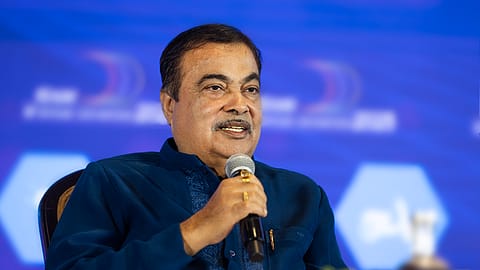Delhi-Mumbai expressway to connect major industrial hubs, boost growth in Gujarat, Maharashtra, says Gadkari ahead of March 2026 target
While the Delhi–Mumbai expressway is scheduled to be completed by March 2026, and a number of sections are already functional, work on several sections is pending in Gujarat and Maharashtra

Union road transport and highways minister Nitin Gadkari today said during a review of the Vadodara–Mumbai expressway on the Delhi–Mumbai corridor that the expressway will boost economic growth across Gujarat and Maharashtra. Delhi–Mumbai Expressway is scheduled to be completed by March 2026.
Gadkari who reviewed the stretch, directed the officials to ensure strict adherence to quality standards, timely completion, and robust safety measures at all construction sites.
“The expressway will significantly reduce travel time, enhance connectivity to major industrial hubs and PM Gati Shakti nodes, and boost economic growth across Gujarat and Maharashtra,” said Gadkari during the inspection of package six and seven of the greenfield Vadodara–Mumbai expressway on the Delhi – Mumbai corridor.
It may be noted that while the Delhi–Mumbai expressway is scheduled to be completed by March 2026, and a number of sections are already functional, work on several sections is pending in Gujarat and Maharashtra.
Delhi-Mumbai Expressway being implemented by the ministry comprises spurs in 53 numbers of packages having 1386 km length, said a government statement. “As of June 2024, total 26 numbers of packages have been completed. The physical progress of the work is 82% and cumulative length of 1136 km has been constructed,” a note from the ministry said.
“The corridor provides connectivity to major economic centers within Delhi, Uttar Pradesh, Haryana, Rajasthan, Madhya Pradesh, Gujarat and Maharashtra. The impact includes reduction in distance from Delhi to JNPT by about 180 km and reduction in travel time of up to 50% to connected destinations,” it added.
It may be noted that the highway ministry is constructing highways at the rate of 34 km/day now comapared with about 9 km a day construction in the UPA regime. The ministry has been a frontrunner in capex deployment in the current year as well. It has spent ₹1.71 lakh crore in H1 out of the allocation of ₹2.72 lakh crore for the current financial year.